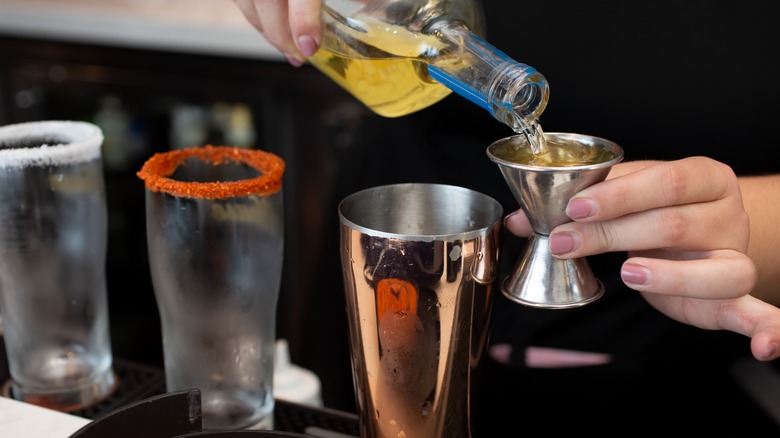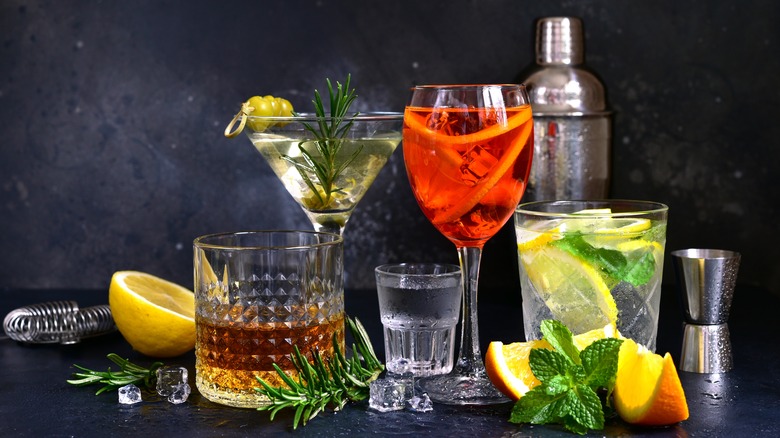What Does It Mean To Order A Well Drink?
Chances are, if you've been to a dive bar or spent time with drinkers on a budget, you've come across the phrase "well drink." Although bartenders and more knowledgeable customers throw the order around, it's more than possible you never quite figured out what it means. There's no time like the present, as this insight can help you navigate your next happy hour — where well drinks are often offered at a discount — with ease.
Well drinks, to put it simply, are made with more affordable liquor bottles that bartenders keep close at hand in their "well," hence the name. A bartender's well is their station, armed with frequently used alcohols that won't drive up the price of your go-to drink. A well drink is often thought of as a contrast to certain cocktails, which might be advertised to include a particular brand, or a call drink, where the customer specifies or calls out the mid- or top-shelf label they want.
Depending on where you live, you may also hear patrons refer to them as "rail drinks," or request the "house" booze, as these are other terms that signal you want the cheap stuff, though you should confirm with your server to be safe. As for the liquor itself, most professionals stock stations with clear liquors including vodka, gin, and tequila; brown liquors including whiskey and rum; and flavorful additions like vermouth, triple sec, sweet and sour mix, and garnishes. Bars are also increasingly placing mezcal and bitters in the well.
What counts as a well drink?
Now, you may wonder what exactly to request at the bar — and how much it will cost you. Mixed drinks like Scotch and soda, gin and tonic, and rum and Coke are straightforward examples of well drink orders. Surprisingly enough, fancier-sounding options like a Tom Collins, gimlet, mojito, or whiskey sour fall into the rail category, too.
These sour drinks may sound labor-intensive, but they actually only require a handful of added ingredients, like a fountain soda or citrus juice, plus the house liquor. This keeps the price down and the workload low for professionals overwhelmed at happy hour. Of course, if you request a brand by name, even a relatively cheap one, you're back in call drink territory. For those unsure about ordering liquor at a new spot, you can always ask your server what's in the well.
As for price, this will vary from place to place. Ultimately, house bottles come down to the barkeep's preferences, the establishment itself, and the suppliers. A whiskey-centric cocktail spot may sport more expensive labels and more brown options in their well, whereas a dive might have a bare-bones lineup and dirt-cheap, harsh vodka. That's why the taste and availability of your favorite well drinks will vary, as will your bill. Over the years, craft cocktail makers have responded to an increasingly discerning clientele by stocking better quality house bottles. As such, we have ourselves to blame as the price of drinks gets higher.


